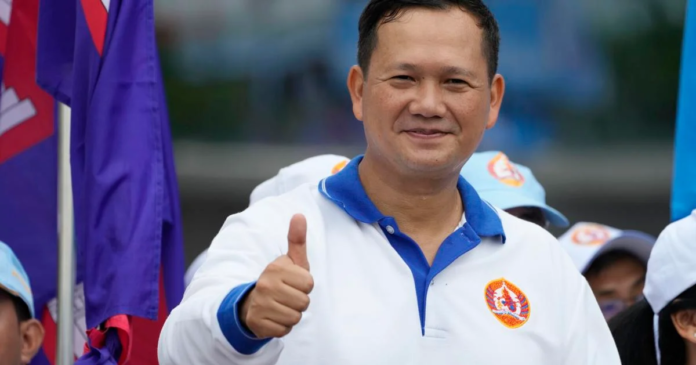After nearly four decades in office, Hun Sen, the prime minister of Cambodia and one of the world’s most powerful men, said on Wednesday that he would step down and transfer authority to his eldest son.
Cambodian PM Hun Sen to step down: Since 1985, the former Khmer Rouge cadre has been in charge of the country. He has suppressed freedom of speech, outlawed opposition groups, and eliminated any rivals to his authority.
With 82 percent of the vote in a resounding victory on Sunday, his Cambodian People’s Party (CPP) cleared the door for a dynastic succession to his eldest son that some detractors have likened to North Korea.
The 70-year-old made his decision to step down as prime minister known in a special broadcast on state television. “I would like to ask for understanding from the people as I announce that I will not continue as prime minister,” he said.
Before the election, election officials dismissed the sole major competitor, the Candlelight Party, on a technicality, and political analysts predict that the CPP will win all but five lower house seats.
The government praised the 84.6 percent voter turnout as proof of the nation’s “democratic maturity,” but Western countries, including the United States and the European Union, denounced the election as neither free nor fair.
Hun Manet, a 45-year-old four-star general, would lead a new administration on August 22 in the evening, according to Hun Sen.
He urged support for Hun Manet, who would take over as prime minister.
Chinese heritage
Hun Sen delayed the transfer of power to his son for a year and a half, and the 45-year-old actively participated in the election campaign on Sunday.
However, the departing leader has clearly indicated that he plans to retain influence, even after stepping down, thereby quashing the notion that the nation’s course might be altered.
He declared on Wednesday that he would take over as senate president and serve as the country’s head of state while the monarch is away.
Under Hun Sen, Cambodia has adopted a Beijing-centric stance and benefited from significant Chinese infrastructure investments, notably the renovation of a naval facility that has unnerved Washington.
China congratulated Hun Sen on his victory in Sunday’s election, and President Xi Jinping did so personally.
However, the influx of Chinese money has given rise to issues. These issues include a spate of casinos and internet scam businesses that employ foreign workers, many of whom trafficked and forced to work in horrific conditions.
Critics claim that endemic corruption and environmental damage have also characterized his leadership.
Cambodia ranks 150th out of 180 countries in Transparency International’s corruption perception rating. In Asia, only North Korea and Myanmar have lower rankings.
Rights organisations charge Hun Sen with manipulating the judicial system to stifle any challenge to his power, including that of critical activists, unruly union bosses, and politicians.
“Crackdown on Opposition: Politicians Sentenced, Election Laws Modified, and Key Figures Disqualified”
During his tenure in office, authorities found a large number of opposition politicians guilty and sentenced them to prison. Additionally, they modified the legislation before Sunday’s election to make it unlawful for anyone to urge voters to tamper with their ballots.
Authorities disqualified exiled opposition leader Sam Rainsy from running for office for 25 years five days before election day because he urged voters to invalidate their ballots.
In March, opposition chief Kem Sokha was found guilty of treason and given a 27-year prison term for his alleged role in a plot to overthrow Hun Sen’s administration. He is currently under home arrest to complete his sentence.

